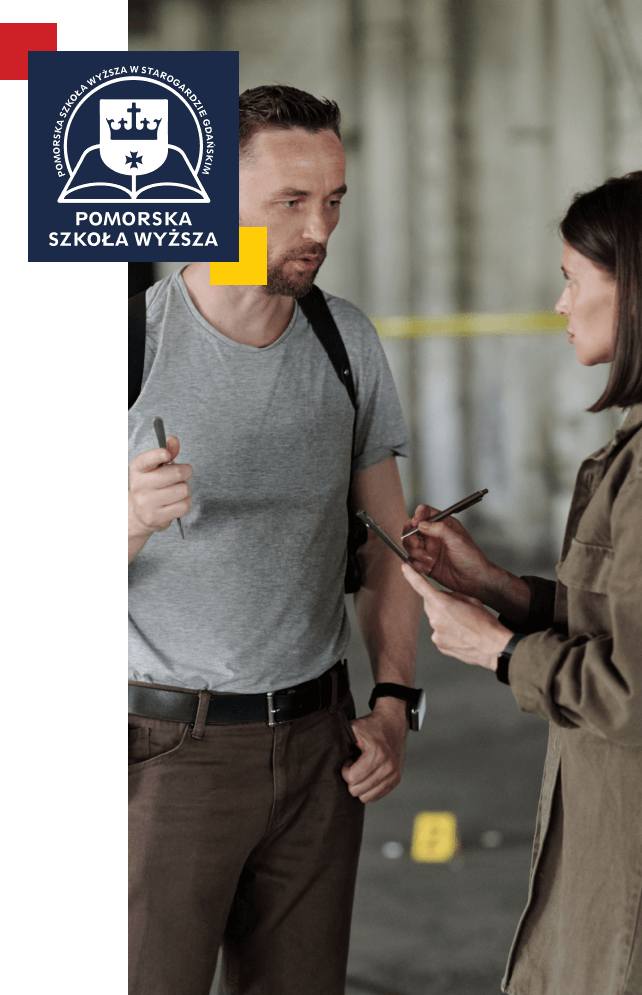Duration of study:
3 years (6 semesters)
Number of specialities
to choose from: 2
Mode of study: part-time
Registration:
only 5 minutes!

Bachelor's degree in Criminology with a practical profile provides the opportunity to acquire comprehensive knowledge and practical skills as well as general knowledge in the field of social sciences, in the legal sciences and security sciences, especially in combating crime, criminology, criminology, victimology, re-socialisation and in the area of criminal and social policy. The programme of this field of study equips graduates with knowledge of crime in its various forms and manifestations, criminogenic phenomena, methods of preventing and combating crime, elimination of factors threatening public safety and individual security, support and assistance to victims of crime, rehabilitation activities both with regard to addicts and those involved in conflict with criminal law. At the same time, studies in the field of Criminology provide the acquisition of knowledge and practical skills to understand the social phenomena described as crime-related.
Bachelor's degree in Criminology with a practical profile will prepare specialists in the areas of combating crime, criminology, forecasting social pathologies and victimology in terms of: threats to national security including criminological threats, cyber threats and social pathologies, the legal system in force in the area of criminology, institutions responsible for ensuring public security in the broad sense, issues relating to methods and forms of preventing and combating crime, its control and forecasting, interrogating people, re-socialisation, forensic techniques, victimology, ensuring cyber security or psychological elements related to criminology.
Graduates of Criminology Bachelor degree students will acquire comprehensive analytical and interpretative as well as practical skills from the point of view of the labour market needs, especially in terms of the ability to take a creative and analytical approach to criminology problems, ease in communicating solutions and leading discussions, tolerance for alternative points of view, knowledge of fundamental concepts shaping the background of criminology, which is widely understood as internal security, ability to quickly acquire new competences and skills as a result of the intellectual flexibility necessary to face the problems of this security. Graduates will also be desirable specialists for the development and implementation of both programmes and strategies in the field of criminology and homeland security, for making priority decisions concerning the development of this security, the elimination of its threats as well as the elimination of its consequences.
This course of study will prepare you for employment in bodies, institutions or services such as:
You will be able to, also become a probation officer.
The studies will enable you to acquire knowledge and skills necessary to work in: state and local government institutions and offices, socio-therapeutic day-care centres, day-support centres and educational establishments - implementing upbringing and prevention activities, non-governmental organisations and other institutions dealing with: security, crime, observance of human rights and protection of crime victims.
You will also develop skills and competences useful for employment in the private sector, including: specialist security formations, private security agencies and detective companies.
*Forma tradycyjna
This pathway will enable you to learn about the organisational structures, competences and principles of the entities responsible for ensuring security and combating crime. You will develop your knowledge of criminal law, from a substantive and procedural point of view. You will delve into criminology, penology and criminal policy. You will master methods for measuring and analysing crime quantitatively. You will learn about the structures of organised crime and the overt and covert ways of fighting it. You will develop your skills in working with an individual case (case study method - gathering information, verification, interviewing and preparing a prevention, correction or intervention plan). You will learn how to conduct an interview and how to question an elderly person or a child as a witness. You will gain basic knowledge about securing the scene (crime) and traces. You will learn how to take fingerprints from different surfaces and how to take a scent trail or secure a footprint in the snow.
*Forma tradycyjna
With this specialisation, you will be a highly qualified professional prepared to work in family support centres and crisis intervention centres. You will learn how to understand the needs of clients in these centres and plan their personal and professional development. You acquire the knowledge and skills necessary to identify and analyse different phenomena in the field of social development and security. You develop your ability to diagnose and solve complex problems in the field of deviance, social pathology and victimology. The curriculum of this specialisation includes, among others, classes on selected issues from: pedagogy, psychology, sociology, law, biomedical basis of development and upbringing. You will also study subjects in the field of: criminology and criminology (issues of green criminology, cybercrime, organised and economic crime), methods and techniques of rehabilitation and criminological work, methods of work with: addicts, juvenile perpetrators and victims of crime.

Doctor of political sciences, long-time employee of companies related to rail and road transport. Lecturer at many Polish universities, in particular in the fields of: internal security, administration, logistics, marketing.

Doctor of Economics - specialist in finance, banking, marketing, management and also investment analysis and valuation. Professional practitioner with 25 years of experience. Long-time academic lecturer. Author of nearly 20 scientific publications and participant of numerous national and international conferences.

Doctor of social sciences in the discipline of economics and finance. Graduate of, inter alia, the Jagiellonian University and the University of Zielona Góra. He obtained his postdoctoral degree at VUZF University in Sofia. Honorary doctorate, entrepreneur, local government official.

Pomeranian University
in Starogard Gdanski
112/114 Kościuszki St.
83-200 Starogard Gdański
Pomeranian voivodeship
Pomeranian University
in Starogard Gdański
the first university
in Kociewie, established
w 2001 roku.
PU offers under- and postgraduate studies
on various courses:
. Administracja, Kryminologia,
Pedagogika, Logistyka,
Bezpieczeństwo wewnętrzne,
Bezpieczeństwo państwa i ochrona ludności.